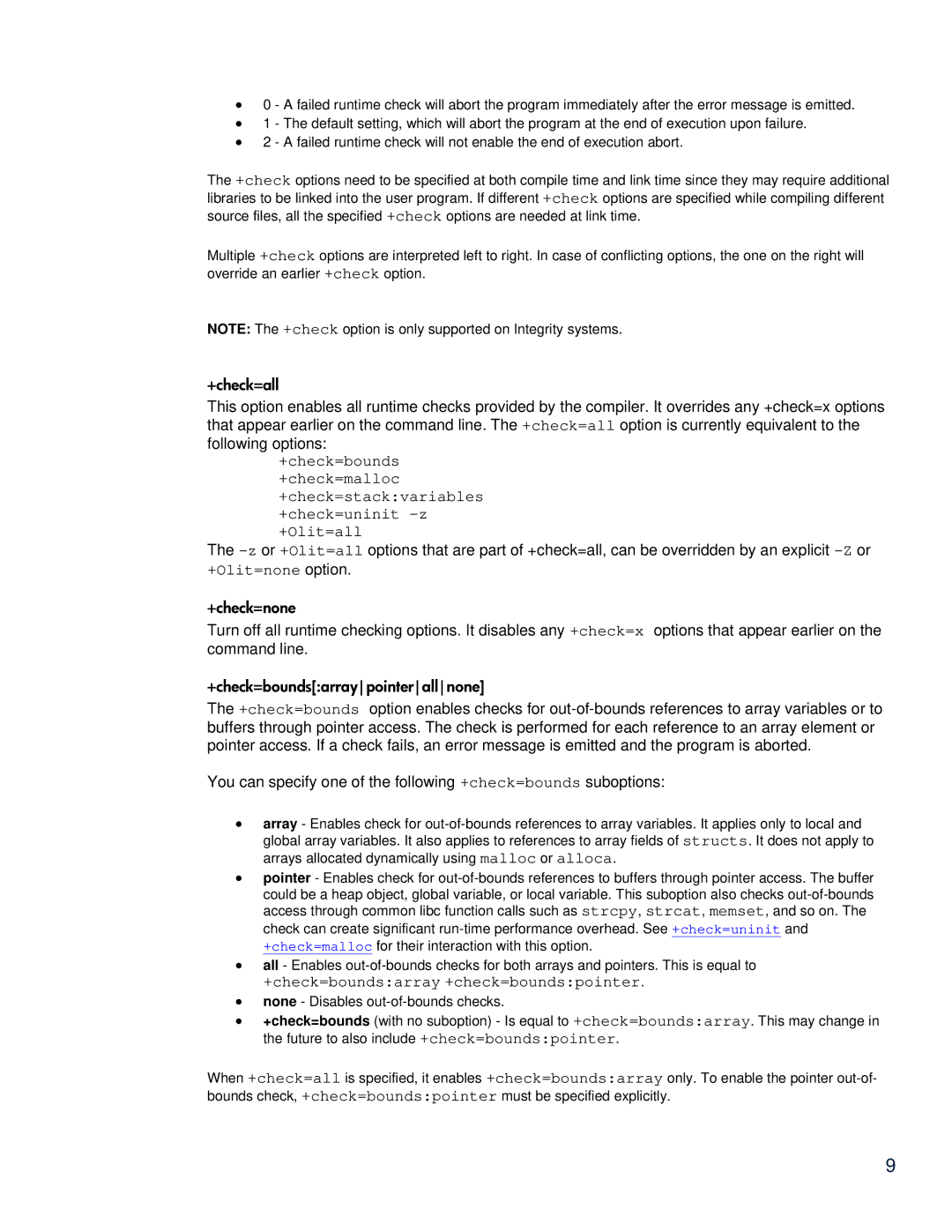•0 - A failed runtime check will abort the program immediately after the error message is emitted.
•1 - The default setting, which will abort the program at the end of execution upon failure.
•2 - A failed runtime check will not enable the end of execution abort.
The +check options need to be specified at both compile time and link time since they may require additional libraries to be linked into the user program. If different +check options are specified while compiling different source files, all the specified +check options are needed at link time.
Multiple +check options are interpreted left to right. In case of conflicting options, the one on the right will override an earlier +check option.
NOTE: The +check option is only supported on Integrity systems.
+check=all
This option enables all runtime checks provided by the compiler. It overrides any +check=x options that appear earlier on the command line. The +check=all option is currently equivalent to the following options:
+check=bounds
+check=malloc
+check=stack:variables +check=uninit
The
+Olit=none option.
+check=none
Turn off all runtime checking options. It disables any +check=x options that appear earlier on the command line.
+check=bounds[:arraypointerallnone]
The +check=bounds option enables checks for
You can specify one of the following +check=bounds suboptions:
•array - Enables check for
•pointer - Enables check for
•all - Enables
+check=bounds:array +check=bounds:pointer.
•none - Disables
•+check=bounds (with no suboption) - Is equal to +check=bounds:array. This may change in the future to also include +check=bounds:pointer.
When +check=all is specified, it enables +check=bounds:array only. To enable the pointer
9
